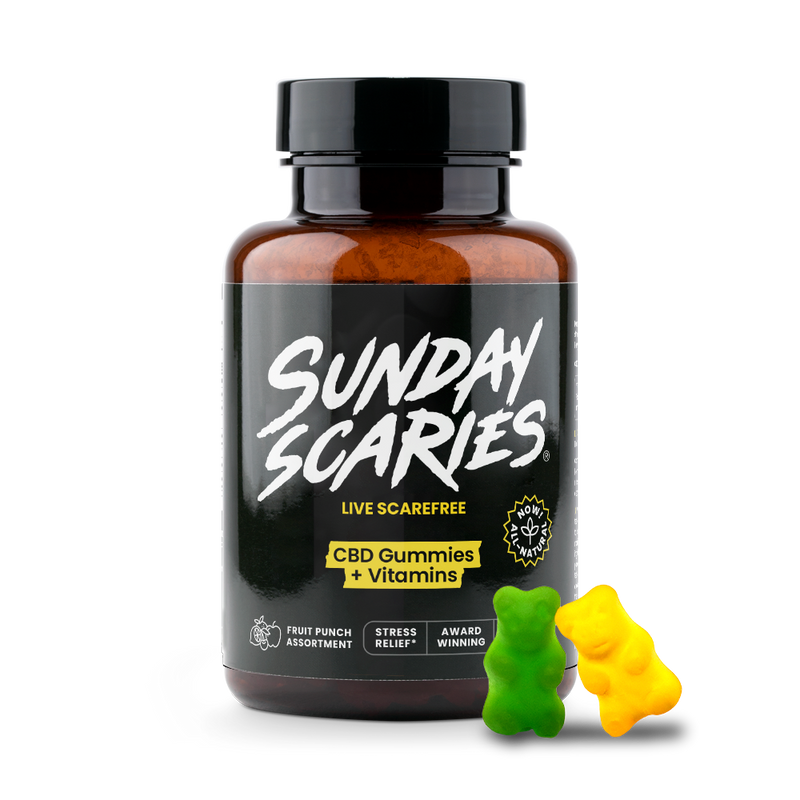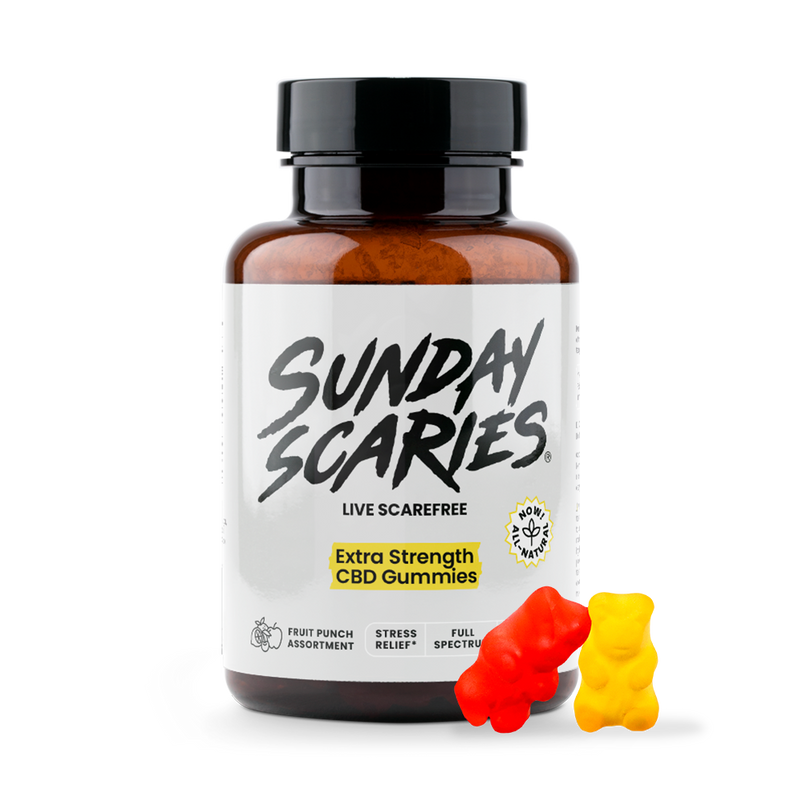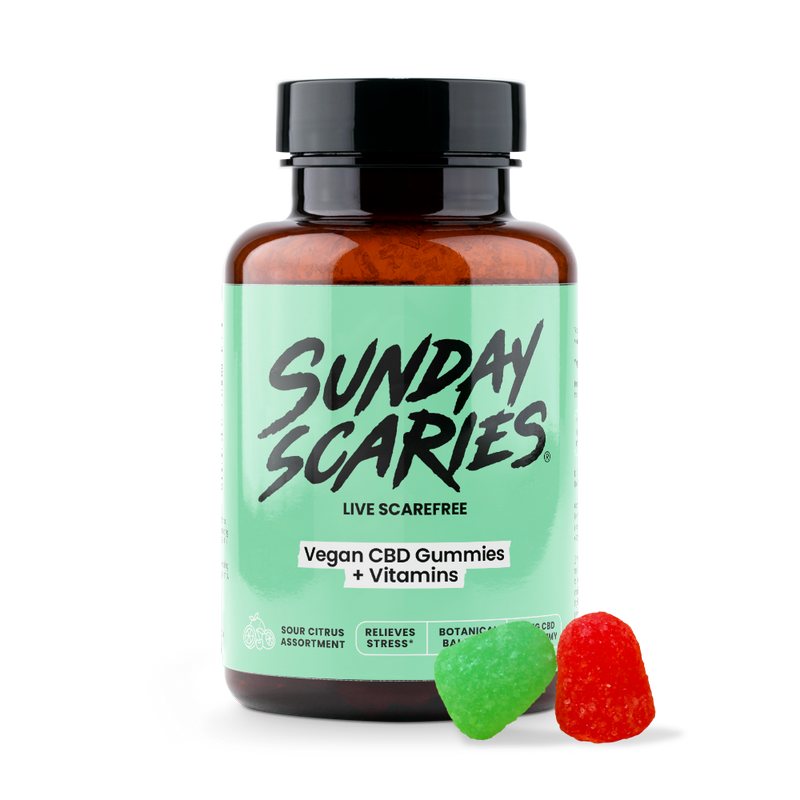
Are CBD Oil & Gummies Federally Legal?

Yes, CBD derived from hemp is federally legal in the United States due to the 2018 Farm Bill, provided it contains no more than 0.3% THC. CBD derived from marijuana is not federally legal, regardless of the THC content.
However, each state has its regulations, which can affect the legal status of CBD products. This article outlines what you need to know about the federal and state legality of CBD.
Key Takeaways
- The 2018 Farm Bill legalized hemp-derived CBD products federally, provided they contain no more than 0.3% THC, but the legal status of CBD varies significantly at the state level.
- The Food and Drug Administration (FDA) partially regulates CBD products, restricting their marketing and sale, particularly in food and dietary supplements. This is due to ongoing safety and efficacy concerns from brands making medical claims.
- Consumers must ensure they are purchasing legal and safe CBD products by verifying third-party lab test results and being aware of specific state laws governing CBD use.
Federal Legality of CBD Oil & Gummues
The federal legality of CBD in the United States has undergone significant changes in recent years, primarily due to the passage of the 2018 Farm Bill.
This landmark legislation marked a turning point in the regulation of hemp and hemp-derived products, including CBD.
Prior to this bill, hemp was classified as a Schedule I substance under the Controlled Substances Act, placing it in the same category as marijuana.
However, the 2018 Farm Bill fundamentally altered this classification, paving the way for the broad cultivation and sale of hemp and hemp-derived CBD products.
Currently, federal law recognizes CBD products derived from hemp as legal as long as they contain no more than 0.3% THC on a dry weight basis.
This THC limit plays a pivotal role in differentiating legal hemp-derived CBD oil from marijuana-derived CBD oil, which the federal level still classifies as a controlled substance.
To note, CBD can be derived from either hemp plants or marijuana plants (both varieties of the cannabis plant) but one is legal according to the federal government and the other is not.
While hemp derived CBD oil is federally legal, the situation becomes more intricate when accounting for the diverse state laws and regulations across the country.
The 2018 Farm Bill
The Agriculture Improvement Act of 2018, commonly known as the 2018 Farm Bill, was a watershed moment for the CBD industry.
This legislation effectively removed hemp from the Controlled Substances Act, creating a clear legal distinction between hemp and marijuana.
The bill provides a definition of hemp as including all parts of the Cannabis sativa L. plant, as well as derivatives and extracts, with a delta-9 tetrahydrocannabinol concentration of not more than 0.3 percent on a dry weight basis.
-
For more information on the benefits, risks and legal status, check out our resource: What is Delta-9?
This definition encompasses:
-
Seed
-
Cannabinoids
-
Isomers
-
Acids
-
Salts
-
Salts of isomers
This redefinition of hemp opened the door for the legal cultivation, possession, sale, and distribution of hemp and hemp-derived products, including CBD gummies like vegan CBD gummies, CBD gummies for focus and concentration, CBD candy and extreme CBD gummies.
The Farm Bill’s impact was immediate and far-reaching, taking effect on January 1st, 2019, and signaling a major shift in the regulation of hemp and CBD products.
It’s worth noting that while the bill established the federal legality of hemp-derived CBD, it did not address CBD derived from marijuana, which remains subject to stricter regulations.
You can only buy CBD products derived from marijuana in states where it is recreationally legal or if you have a medical cannabis license.
Still, you cannot ship and marijuana-derived CBD oil across state lines since the interstate commerce remains illegal.
THC Content Requirement
The THC content requirement stipulated by the 2018 Farm Bill forms the foundation of CBD’s federal legality. To be considered federally legal, CBD edibles must contain no more than 0.3% THC on a dry weight basis.
This threshold is critical in distinguishing legal hemp-derived CBD from marijuana-derived CBD, which typically contains higher levels of THC, the psychoactive compound responsible for the “high” associated with marijuana use.
Although, even if the CBD derived from marijuana contains less than .3% THC, it is still considered illegal.
The 0.3% THC limit applies to all parts of the hemp plant and its derivatives, including seeds, extracts, and finished products.
This requirement ensures that legal CBD products do not produce psychoactive effects while still allowing for the potential therapeutic benefits associated with CBD.
Consumers should be mindful of this THC limit when buying CBD products, as surpassing this threshold could potentially lead to legal issues.
Reputable manufacturers and retailers should provide clear information about the THC content of their products, often through third-party lab testing results.
State-Level Variations in CBD Legality
The 2018 Farm Bill set a federal framework for hemp-derived CBD, but the legal landscape turns significantly more convoluted when taking into account state-level regulations.
Despite the federal legalization of hemp-derived CBD, individual states retain the authority to impose their own restrictions or regulations on CBD products. This has resulted in an evolving patchwork of laws across the country, with some states embracing CBD wholeheartedly and others maintaining stricter controls.
The variability in state laws can be stark. Some states have fully aligned their regulations with federal guidelines, allowing for the unrestricted sale and use of hemp-derived CBD products.
Others have imposed additional requirements, such as specific labeling standards, restrictions on certain product types or caps on dosing per serving and per bottle.
In contrast, a few states have taken a more conservative approach, maintaining stricter controls or even prohibiting the sale of CBD products altogether.
This diversity in state regulations underscores the importance for consumers and businesses alike to be well-informed about the specific laws in their state of residence or operation.
States with Strict Regulations
Among the states with more stringent CBD regulations, Idaho and Nebraska stand out as particularly restrictive.
These states have taken a hardline approach, requiring CBD products to be 100% THC-free. This zero-tolerance policy for THC content goes beyond the federal standard of 0.3% THC, effectively limiting the types of CBD products that can be legally sold or possessed within these states.
Certain states have implemented their own unique and strict restrictions. For instance:
Idaho
- Legal Status: Illegal unless the CBD product contains zero THC and is derived from one of the five identified parts of the cannabis plant, which excludes the flower.
- Nuance: Products must contain no THC whatsoever.
Iowa
- Legal Status: Legal only for medical use under the Medical Cannabidiol Act.
- Nuance: CBD must be obtained through a state-regulated dispensary with a physician's recommendation.
Mississippi
- Legal Status: Legal for medical use under specific conditions.
- Nuance: Only patients with debilitating epilepsy can use CBD oil containing at least 15% CBD and no more than 0.5% THC.
Nebraska
- Legal Status: Illegal for recreational use; legal for medical use if prescribed by a doctor.
- Nuance: The state follows federal guidelines strictly, making access limited.
South Dakota
- Legal Status: Legal for medical use but illegal for recreational use.
- Nuance: Medical use is restricted to FDA-approved products or those approved by the state’s Department of Health.
These variations highlight the importance of understanding local laws, as what’s legal in one state may be prohibited in another.
In some cases, local law enforcement has even raided hemp and CBD stores, underscoring the real-world implications of these varying regulations.
IMPORTANT NOTE: The laws are constantly changing so be sure to understand the nuances of the state you are in before purchasing CBD.
States with More Lenient Laws
In contrast to the states with strict CBD regulations, several states have adopted more progressive policies that closely align with or even surpass federal guidelines.
California, for example, has embraced a particularly open stance towards CBD, permitting all forms of CBD oil without additional restrictions. This approach allows for a wide range of CBD products to be sold and used within the state, fostering a robust CBD market.
Similarly, Colorado has taken a lenient approach to CBD regulation, allowing for both medical and recreational use of conditionally legal CBD oil.
This aligns with the state’s overall progressive stance on cannabis products, including the accessibility of obtaining a medical cannabis license.
These more permissive state laws not only provide consumers with greater access to CBD products but also create a more favorable environment for CBD businesses to operate. Yet, even in these more permissive states, CBD products must adhere to federal regulations, including the 0.3% THC cap for hemp-derived CBD.
Certain states have implemented their own unique and lenient restrictions. For instance:
- Legal Status: Legal for medical use.
- Nuance: Access expanded for patients with a wider range of conditions.
- Legal Status: Fully legal for both medical and recreational use.
- Nuance: No restrictions on purchase, possession, or use of CBD products.
- Legal Status: Fully legal for both medical and recreational use.
- Nuance: CBD products must be derived from hemp and contain less than 0.3% THC.
- Legal Status: Fully legal for both medical and recreational use.
- Nuance: CBD can be infused in foods, drinks, and dietary supplements.
- Legal Status: Fully legal for both medical and recreational use.
- Nuance: One of the most progressive states, allowing various CBD products.
- Legal Status: Fully legal for both medical and recreational use.
- Nuance: Extensive list of qualifying conditions for medical use.
- Legal Status: Fully legal for both medical and recreational use.
- Nuance: State-regulated dispensaries provide high-quality CBD products.
- Legal Status: Fully legal for both medical and recreational use.
- Nuance: Stringent testing and labeling requirements for CBD products.
- Legal Status: Legal for medical use.
- Nuance: Only low-THC CBD oil (less than 5%) is permitted for certain medical conditions.
- Legal Status: Fully legal for both medical and recreational use.
- Nuance: State regulations ensure safe production and distribution.
- Legal Status: Fully legal for both medical and recreational use.
- Nuance: Extensive medical cannabis program includes CBD.
- Legal Status: Legal for all purposes, provided it contains less than 0.3% THC.
- Nuance: Products must meet strict labeling requirements.
- Legal Status: Legal for all purposes if THC-free.
- Nuance: CBD products must be THC-free to be sold legally.
- Legal Status: Legal for all purposes.
- Nuance: Strict testing and labeling requirements apply.
- Legal Status: Legal for medical use.
- Nuance: State-regulated medical dispensaries provide CBD products.
- Legal Status: Fully legal for both medical and recreational use.
- Nuance: CBD can be added to food and beverages.
- Legal Status: Fully legal for both medical and recreational use.
- Nuance: Extensive medical cannabis program.
- Legal Status: Fully legal for both medical and recreational use.
- Nuance: State regulations ensure product safety and quality.
- Legal Status: Fully legal for both medical and recreational use.
- Nuance: Stringent regulations for production and sale.
- Legal Status: Fully legal for both medical and recreational use.
- Nuance: CBD products must be derived from hemp.
- Legal Status: Legal for medical use.
- Nuance: Only CBD oil with less than 0.3% THC is permitted.
- Legal Status: Fully legal for both medical and recreational use.
- Nuance: Strict state regulations for production and sale.
- Legal Status: Fully legal for both medical and recreational use.
- Nuance: Comprehensive testing and labeling requirements.
- Legal Status: Legal for medical use.
- Nuance: CBD must be obtained through state-regulated dispensaries.
- Legal Status: Fully legal for both medical and recreational use.
- Nuance: State-regulated market ensures safety and quality.
- Legal Status: Fully legal for both medical and recreational use.
- Nuance: CBD products must meet state testing standards.
- Legal Status: Fully legal for both medical and recreational use.
- Nuance: Extensive state regulations for production and sale.
- Legal Status: Legal for medical use.
- Nuance: CBD oil with less than 0.9% THC is permitted for patients with intractable epilepsy.
- Legal Status: Legal for medical use.
- Nuance: CBD must be obtained through state-regulated dispensaries.
- Legal Status: Fully legal for both medical and recreational use.
- Nuance: State regulations ensure product quality and safety.
- Legal Status: Fully legal for both medical and recreational use.
- Nuance: Stringent testing and labeling requirements.
- Legal Status: Fully legal for both medical and recreational use.
- Nuance: One of the most progressive states for CBD use.
- Legal Status: Fully legal for both medical and recreational use.
- Nuance: State-regulated market ensures quality and safety.
- Legal Status: Fully legal for both medical and recreational use.
- Nuance: Comprehensive state regulations.
- Legal Status: Legal for medical use.
- Nuance: CBD oil with less than 0.9% THC is permitted for patients with severe epilepsy.
- Legal Status: Legal for all purposes if derived from hemp.
- Nuance: Products must contain less than 0.3% THC.
- Legal Status: Legal for all purposes if derived from hemp.
- Nuance: Strict testing and labeling requirements.
- Legal Status: Legal for medical use.
- Nuance: CBD products must be state-regulated.
- Legal Status: Fully legal for both medical and recreational use.
- Nuance: State regulations ensure product safety and quality.
- Legal Status: Fully legal for both medical and recreational use.
- Nuance: Extensive state regulations for production and sale.
- Legal Status: Fully legal for both medical and recreational use.
- Nuance: One of the most progressive states for CBD use.
- Legal Status: Legal for medical use.
- Nuance: State-regulated medical dispensaries provide CBD products.
- Legal Status: Legal for medical use.
- Nuance: CBD oil with less than 0.3% THC is permitted for certain medical conditions.
- Legal Status: Legal for medical use.
- Nuance: CBD must contain less than 0.3% THC.
FDA's Role in Regulating CBD Products
The Food and Drug Administration (FDA), one of the federal agencies, plays a pivotal role in the regulation of CBD products at the federal level.
Despite the legalization of hemp-derived CBD under the 2018 Farm Bill, the FDA maintains strict oversight on how CBD can be marketed and sold, particularly in food and dietary supplements.
The agency’s primary concern is ensuring the safety and efficacy of CBD products, as well as protecting consumers from misleading claims.
One of the most significant aspects of the FDA’s stance on CBD is its prohibition on the sale of CBD in any unapproved health products, dietary supplements, or food.
This position stems from the FDA’s interpretation of the Federal Food, Drug, and Cosmetic Act, which places restrictions on the use of active drug ingredients in food and supplements.
As a result, many CBD products on the market today exist in a regulatory gray area, with the FDA continuing to evaluate how best to regulate this rapidly growing industry.
Credible brands in the space are actually urging for a more defined regulatory framework for CBD, and for the FDA's approval of CBD as a dietary supplement.
The big issue is that the FDA says Congress is responsible and Congress says the FDA is responsible. So the legality of the hemp industry is at a bit of a stalemate.
FDA Approved Uses of CBD
In 2023, the FDA has only approved one CBD-based medication, which is Epidiolex. This prescription drug, which contains purified CBD derived from hemp, was approved in June 2018 for the treatment of rare seizure disorders.
Epidiolex represents a significant milestone as the first FDA-approved drug containing a substance derived from the cannabis plant. Nonetheless, it’s critical to comprehend that this approval applies exclusively to Epidiolex and doesn’t extend to other CBD products or uses.
The limited scope of FDA approval underscores the agency’s cautious approach to CBD regulation and highlights the need for further research and clinical trials to establish the safety and efficacy of CBD for other potential medical applications.
FDA Concerns and Warnings
The FDA has consistently expressed concerns about the safety and efficacy of CBD products flooding the market.
One of the primary issues raised by the agency is the potential for liver damage associated with high doses of CBD. This concern is particularly relevant given the wide range of CBD products available, many of which may not provide accurate dosage information or have undergone rigorous safety testing.
Another significant concern for the FDA is the quality and accuracy of CBD products on the market.
Many CBD products have been found to not meet the claims on their labels, potentially misleading consumers about their content or potency. This lack of consistency and reliability in CBD products has led the FDA to take a cautious stance, stating that it does not consider CBD safe enough to be sold lawfully as a dietary supplement.
The agency has also highlighted the complications arising from its drug exclusion rule, which makes it challenging to sell food or beverages containing CBD due to the prior approval of Epidiolex as a prescription drug.
The Impact of the Controlled Substances Act
The Controlled Substances Act (CSA) has played a significant role in shaping the legal status of CBD and cannabis products in the United States.
Enacted in 1970, the CSA established a framework for classifying substances based on their potential for abuse, medical use, and safety.
Under this act, cannabis and its derivatives, including CBD, were initially classified as Schedule I controlled substances, indicating a high potential for abuse and no accepted medical use.
This classification had far-reaching implications for CBD, including:
-
Severely limiting scientific research on CBD
-
Restricting federal oversight of CBD products
-
Placing CBD in the same category as drugs like heroin and LSD
-
Making CBD illegal at the federal level
-
Subjecting CBD to strict controls
-
Continuing the bastardization of the cannabis plant, stemming back to the Marijuana Tax Act of 1937
However, recent legislative changes, particularly the 2018 Farm Bill, have significantly altered the legal landscape for CBD derived from hemp, creating a distinction between hemp and marijuana under federal law.
Hemp vs. Marijuana Under the CSA
The 2018 Farm Bill introduced a crucial legal distinction between hemp and marijuana under the Controlled Substances Act. Hemp is now defined as any part of the cannabis sativa plant with no more than 0.3% of tetrahydrocannabinol (THC) on a dry weight basis.
This definition explicitly excludes hemp from the CSA’s definition of marijuana, provided it meets the THC threshold. This reclassification has significant implications for the legal status of CBD derived from hemp.
In contrast, marijuana remains classified as a Schedule I controlled substance under the CSA. The legal definition of marijuana includes all parts of the Cannabis Sativa L. plant with THC content exceeding 0.3%.
This distinction is crucial for understanding the legal status of different cannabis products. While hemp plants typically contain higher amounts of CBD than THC, cannabis plants cultivated for marijuana generally have higher THC concentrations.
This difference in chemical composition not only affects the plants’ legal status but also their potential uses and effects.
Efforts to Reschedule Cannabis
In recent years, there have been significant efforts to reschedule cannabis under the Controlled Substances Act, aiming to facilitate research and expand medical use. These efforts gained momentum in 2022 when President Biden directed a review of marijuana’s classification under the CSA.
Following this directive, in May 2024, the U.S. Department of Justice proposed rescheduling marijuana from Schedule I to Schedule III.
This proposed rescheduling could have far-reaching implications for the cannabis industry, including the CBD market. Moving marijuana to Schedule III would reduce some restrictions on cannabis-related research, potentially promoting cannabinoid drug development.
Nonetheless, it’s worth mentioning that if rescheduled, marijuana would still undergo substantial regulation by both the DEA and FDA.
For the CBD industry, this change could potentially lead to more comprehensive research on CBD’s effects and uses, paving the way for new FDA-approved CBD-based medications in the future.
Purchasing and Using CBD
When it comes to purchasing and using CBD products, understanding what “legal” means in this context is crucial. In the realm of CBD, ‘legal’ refers to the permissibility of sale, purchase, possession, and consumption based on state laws.
This definition underscores the importance of being aware of both federal and state regulations when considering CBD use.
The popularity of CBD has grown significantly in recent years, with a Forbes survey indicating that 60% of U.S. adults have tried a CBD product. This widespread use highlights the need for consumers to be well-informed about the products they’re purchasing and using.
Different forms of CBD, such as gummies, oils, and topical creams, can have varying risks and benefits. Hence, users should comprehend these differences and select products that best meet their needs, ensuring they adhere to relevant laws.
How to Ensure You're Buying Legal CBD
One of the most crucial steps in ensuring you’re purchasing legal CBD is to look for products that have been tested by an independent third party.
These third-party tests assess the safety of the product, including the absence of contaminants, and verify its composition. Reputable CBD products should have a certificate of analysis (COA) from an independent lab readily available. This COA is a valuable tool for consumers, as it helps verify the product’s ingredients, dosage, and expiration date.
By carefully examining lab reports and understanding the exact cannabinoid profile of a product, consumers can differentiate between legal and potentially prohibited CBD products. It’s advisable to purchase CBD from trusted sources such as online brands with verified reviews, pharmacies, state-regulated dispensaries, or reputable manufacturers.
Conversely, it’s generally recommended to avoid buying CBD products from gas stations, smoke shops, or Amazon as these venues/platforms may be less likely to offer high-quality, legally compliant products.
Summary
As we’ve explored throughout this article, the legal status of CBD in the United States is a complex and evolving landscape.
The 2018 Farm Bill marked a significant turning point, federally legalizing hemp-derived CBD with less than 0.3% THC.
However, this federal stance is just one piece of the puzzle. State laws vary widely, with some embracing CBD wholeheartedly and others imposing strict regulations or even bans. The FDA’s ongoing concerns about CBD safety and efficacy add another layer of complexity to the regulatory environment.
For consumers and businesses alike, navigating this legal landscape requires diligence and awareness. It’s crucial to understand both federal and state regulations, to purchase CBD products from reputable sources, and to be aware of the potential risks and benefits associated with CBD use.
As research continues and regulations evolve, we can expect further changes in the legal status of CBD. Staying informed about these developments is key to making responsible decisions about CBD use and ensuring compliance with applicable laws.
Frequently Asked Questions
Is CBD legal in all 50 states?
No, CBD is not legal in all 50 states. While hemp-derived CBD with less than 0.3% THC is federally legal, state laws vary, and some have imposed restrictions or bans on certain CBD products. It's important to check your state's laws regarding CBD.
Can I travel with CBD products?
Yes, you can travel with CBD products within the United States as long as they are hemp-derived and contain less than 0.3% THC. However, it's important to check the laws of your departure and arrival states, as well as any states you'll be traveling through. For international travel, it's best to leave CBD products at home.
Will CBD show up on a drug test?
CBD isolate products, which contain no THC, are the safest option for those who are subject to drug testing. It's best to discuss your CBD use with your employer or the testing agency to ensure compliance with their policies.
Is it legal to sell CBD products online?
Yes, selling CBD products online is legal at the federal level if the products are derived from hemp and contain less than 0.3% THC, but sellers need to comply with FDA regulations and possibly state regulations as well. It's important to thoroughly research and adhere to these laws before selling CBD products online.
Is it legal to give CBD to my pets?
It's important to consult with a veterinarian before giving CBD to your pets, as the FDA has not approved any CBD products for animal use, and the legal status of CBD for pets may vary by state. Always seek professional advice to ensure the safety and legality of giving CBD dog treats to your pets.
Are THC Gummies Federally Legal?
Yes, THC Gummies are federally legal, but only if they are hemp-derived and contain less than 0.3% THC by dry weight in the finished product. This includes products commonly known as THC Gummies and Delta-9 gummies, provided they meet these strict criteria.
However, if the gummies are derived from marijuana, they are illegal under federal law. The 2018 Farm Bill legalized hemp-derived products, including THC Gummies and Delta-9 gummies, as long as they comply with the THC content limit. Marijuana-derived products do not meet this criterion and therefore remain federally prohibited.
Always check your local and state laws, as regulations can vary significantly and impact the legality of THC Gummies in your area.

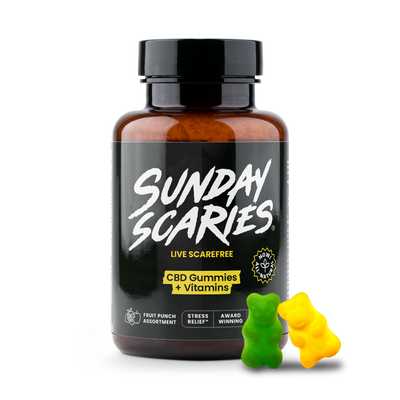 CBD Gummies
Stress Relief
CBD Gummies
Stress Relief
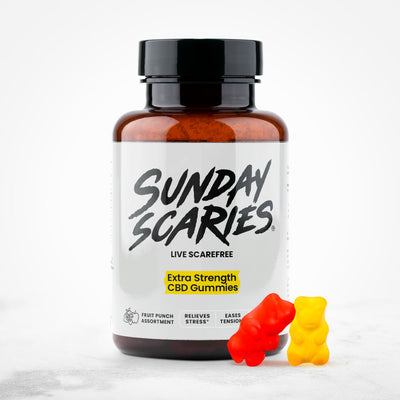 Extra Strength CBD Gummies
Stress Relief
Extra Strength CBD Gummies
Stress Relief
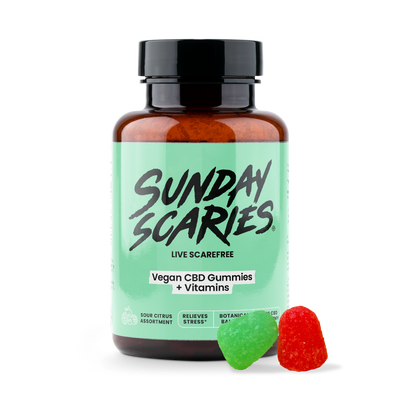 Vegan CBD Gummies
Stress Relief
Vegan CBD Gummies
Stress Relief
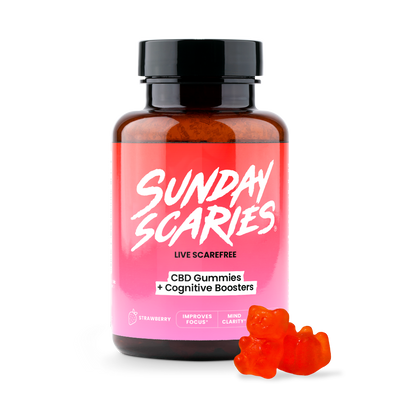 CBD Gummies for Focus
Focus Boost
CBD Gummies for Focus
Focus Boost
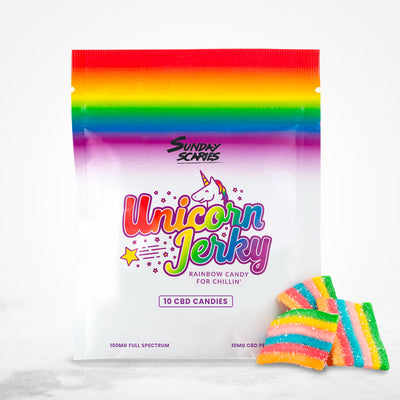 CBD Candy
Mood Lift
CBD Candy
Mood Lift
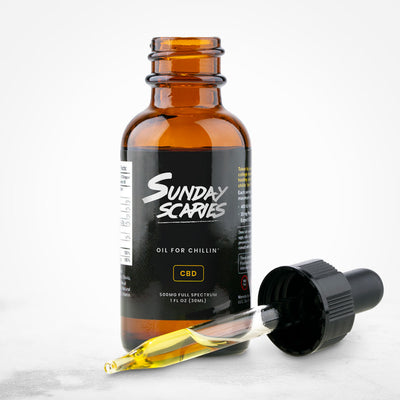 CBD Daytime Oil
Stress Relief
CBD Daytime Oil
Stress Relief
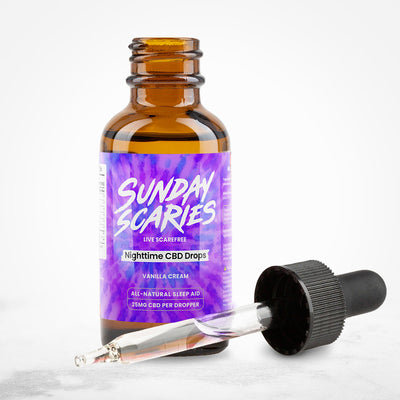 CBD Sleep Oil
Sleep Aid
CBD Sleep Oil
Sleep Aid
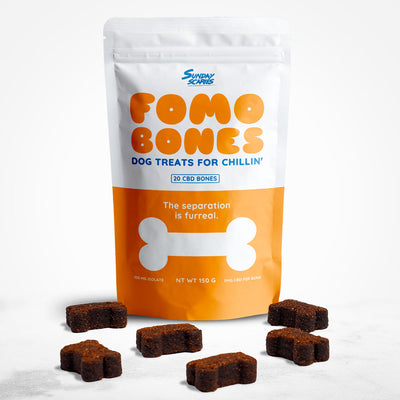 CBD Dog Treats
Stress Relief
CBD Dog Treats
Stress Relief
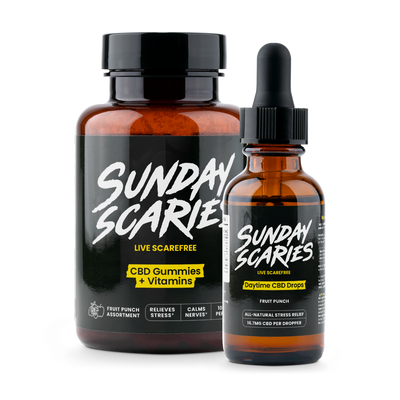 Side Piece Bundle
Stress Relief
Side Piece Bundle
Stress Relief
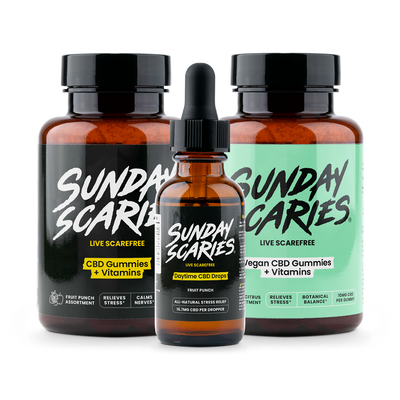 Rando Bundle
Stress Relief
Rando Bundle
Stress Relief
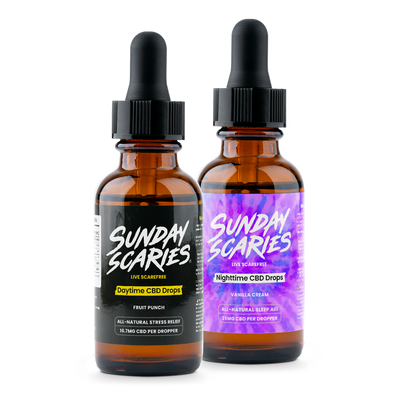 Sunrise & Sunset CBD Oil Bundle
Stress Relief
Sunrise & Sunset CBD Oil Bundle
Stress Relief
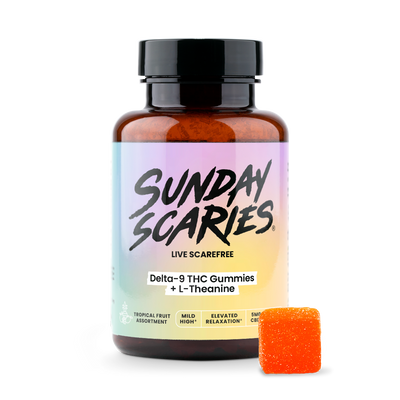 5mg Delta-9 Gummies
Euphoria
5mg Delta-9 Gummies
Euphoria
 10mg Delta-9 Gummies
Euphoria
10mg Delta-9 Gummies
Euphoria
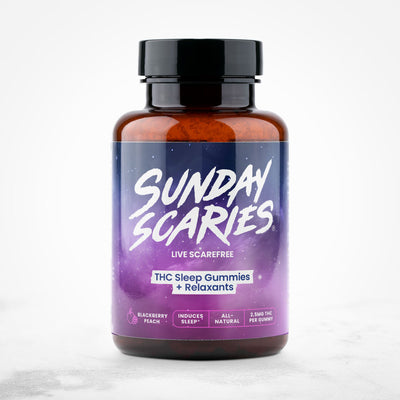 THC Gummies for Sleep
Sleep Aid
THC Gummies for Sleep
Sleep Aid
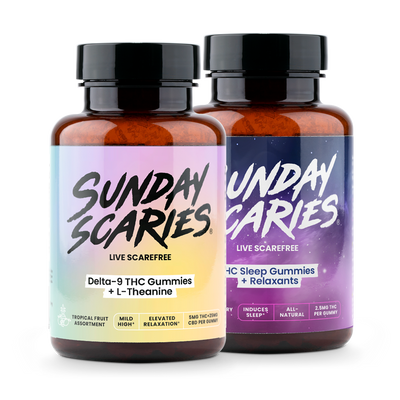 Day & Night THC Gummies Bundle
Stress Relief
Day & Night THC Gummies Bundle
Stress Relief
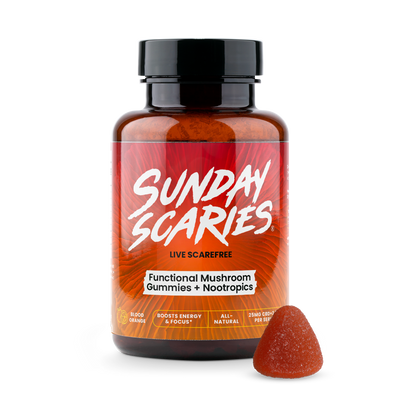 Mushroom Gummies
Focus Boost
Mushroom Gummies
Focus Boost
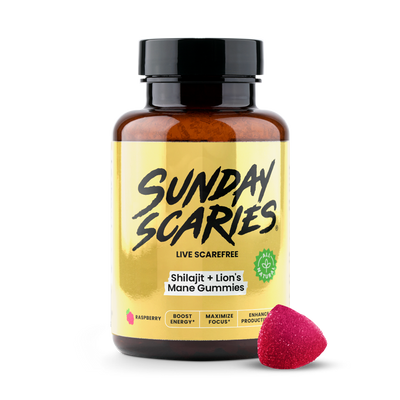 Shilajit Gummies
Focus Boost
Shilajit Gummies
Focus Boost
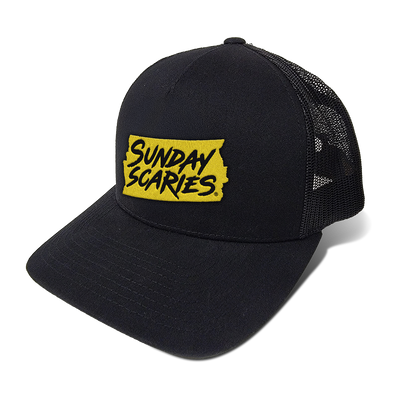 Sunday Scaries Hat
Sunday Scaries Hat
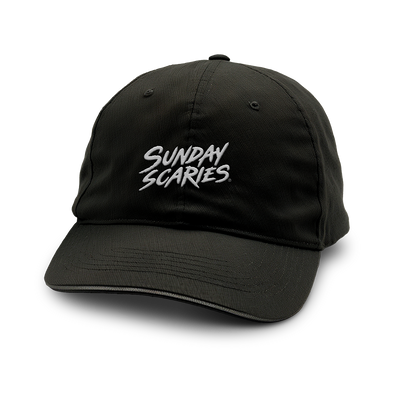 Sunday Scaries Dad Hat
Sunday Scaries Dad Hat
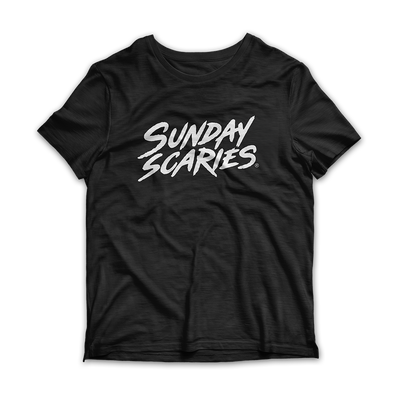 Sunday Scaries T-Shirt
Sunday Scaries T-Shirt
 Sunday Scaries Pocket Tee
Sunday Scaries Pocket Tee
 Sunday Scaries Tank Top
Sunday Scaries Tank Top
 Sunday Scaries Sweatshirt
Sunday Scaries Sweatshirt
 Sunday Scaries Blanket Jacket
Sunday Scaries Blanket Jacket
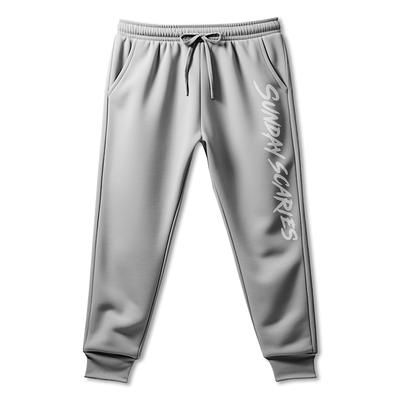 Sunday Scaries Sweatpants
Sunday Scaries Sweatpants

